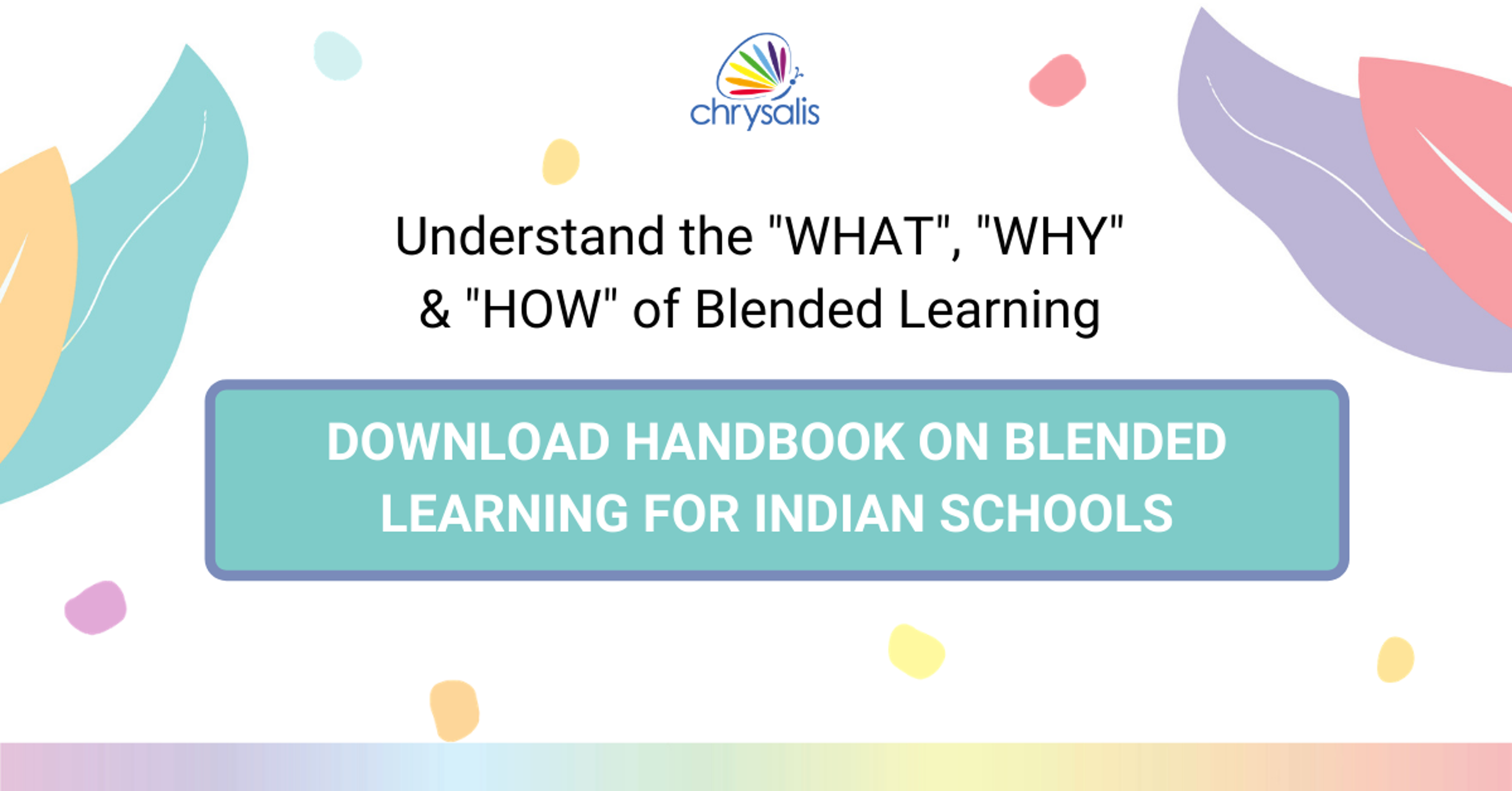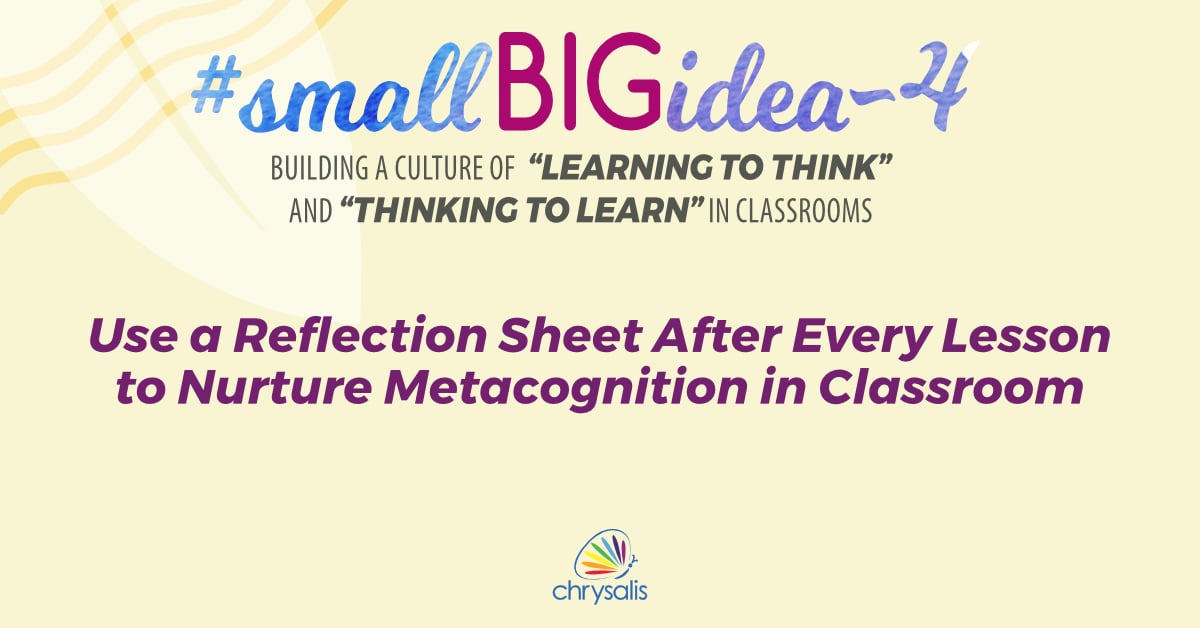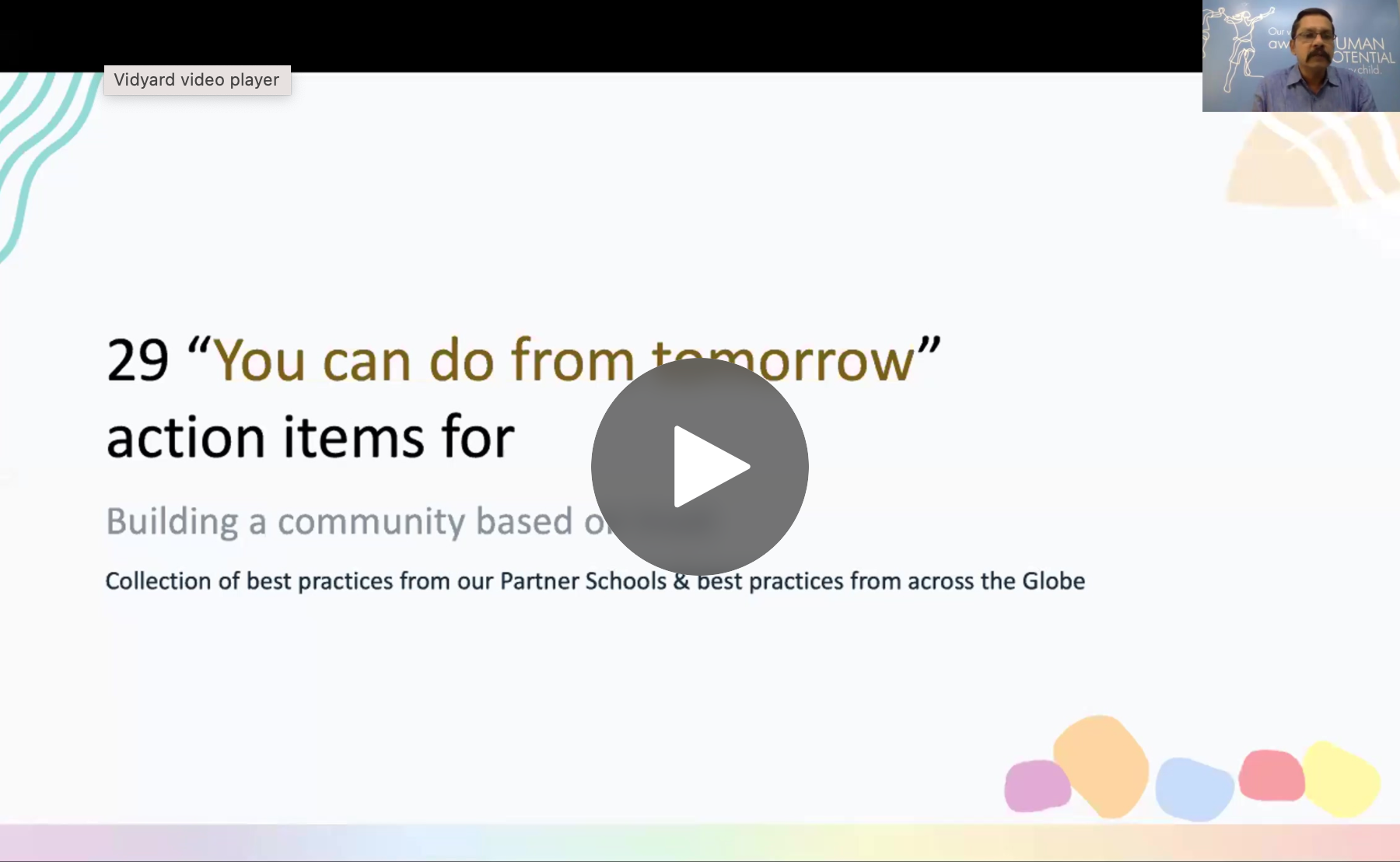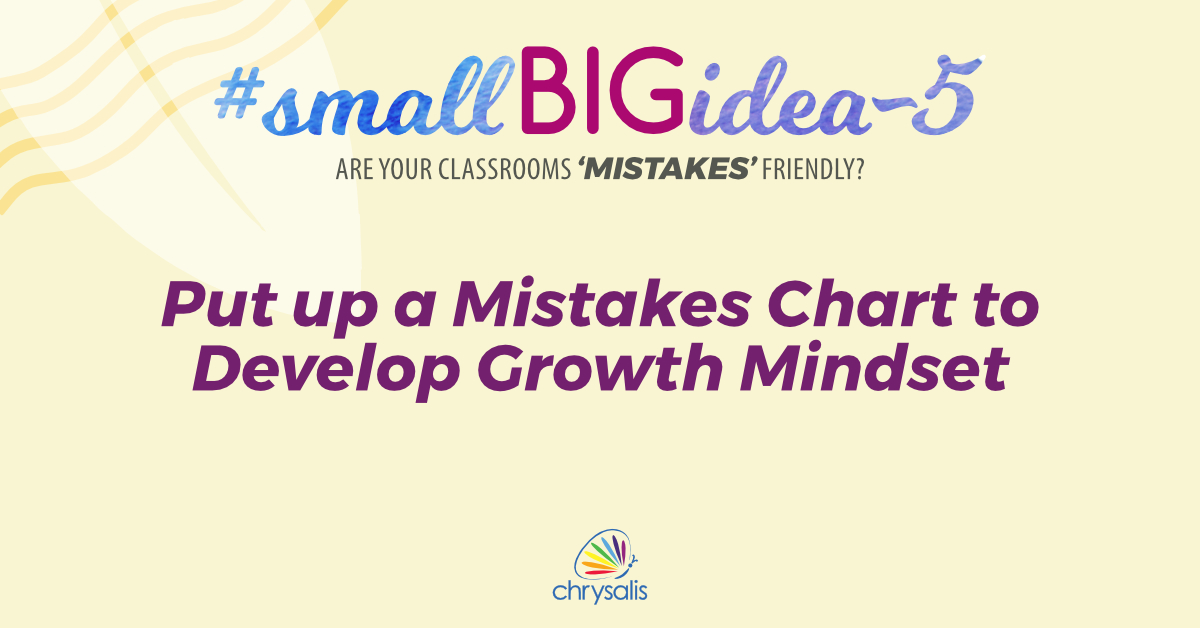A year into the pandemic, the world stands witness to a massive shift in the way our children were/are being educated. With the classrooms turning virtual, teaching and learning became a coveted privilege - for those who had access to a stable internet connection. A study by UNESCO1 shows an average learning loss of two-thirds of an academic year worldwide due to COVID-19 school closures. We can imagine what this learning loss would look like in a country like India where even a regular power supply is a challenge in some parts. The field study by Azim Premji University2 suggests that not only are children not achieving learning outcomes of their current grade, but there is also a learning loss from the previous grade (forgetting previously learnt concepts).
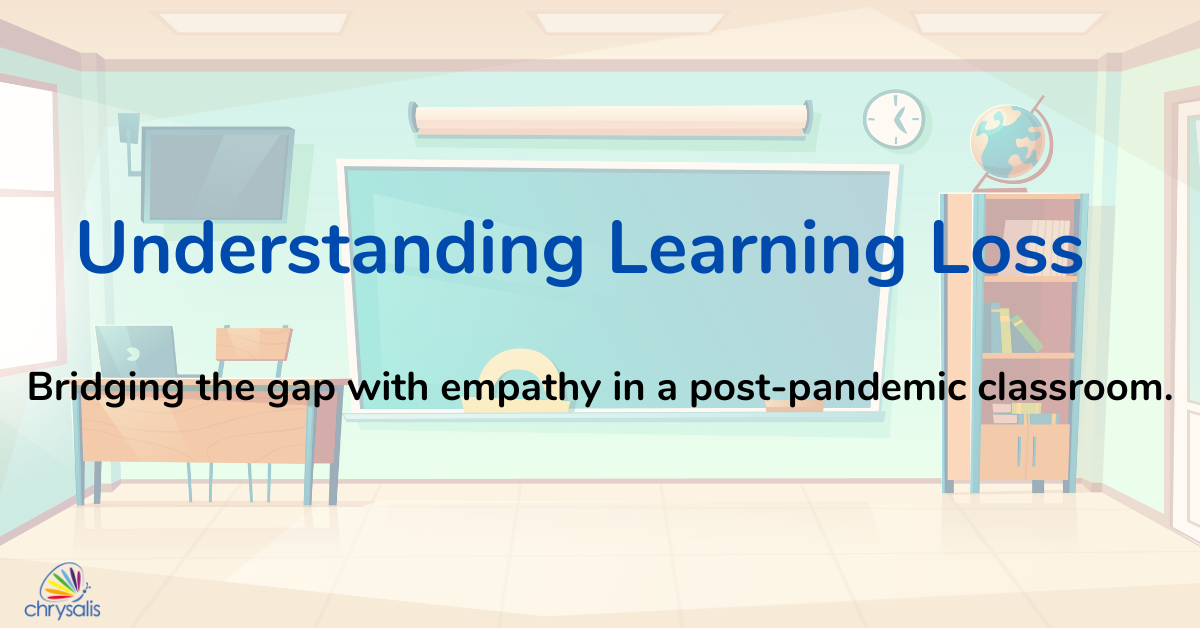
What is Learning Loss?
In simpler terms, learning loss is a phrase that refers to any specific or general loss of information and abilities, as well as reversals in academic progress, which are most often caused by lengthy gaps or discontinuities in a child's education. The school leaders and teachers while being thrilled to welcome back children as the schools reopen, still have the underlying worry of overcoming the learning loss and empathetically bridging this gap for every child.
Consequences & Impact of Learning Loss in Early Childhood
The field study conducted by the Azim Premji Foundation, with 16067 children in 1137 public schools covered 44 districts across 5 states -- Chhattisgarh, Karnataka, Madhya Pradesh, Rajasthan, and Uttarakhand. The assessment tools for this study were designed in alignment with NCERT’s Learning Outcomes for four specific skills in two foundational learning areas - language and mathematics, for Grades 1 to 5.
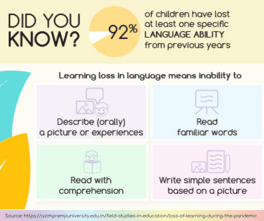
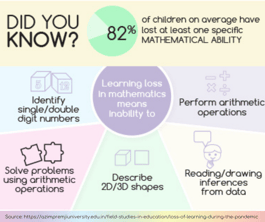
The Study states that the younger children found it extremely difficult to learn newer concepts in the absence of a collaborative learning space like a classroom in the physical presence of their beloved teachers. In addition to this, they also seem to have forgotten what they learned in the previous grades. This regression involves the loss of foundational learning skills such as reading with comprehension and performing addition and multiplication, which they had previously mastered, and which serve as the framework for future learning.
The absence of these foundational learning skills will not only impede higher order thinking, but also the conceptual comprehension across topics.
This impact of learning loss due to regression (forgetting skills/concepts from earlier grades) is likely to be amplified if conscious efforts are not made to curate thoughtful remediation upon school reopening.
Possible solutions to Tackle Learning Loss in Early Childhood
Hopefully, the schools are set to reopen in the coming days, therefore direct teaching and learning will be the way to address the significant learning losses in children, especially for those in the early years. However, looking at the grim impact on our children, the need of the hour is to build a system with innovative approaches to bring them back to the classrooms for a joyful learning experience.
Edtech will play a major role in setting up the structure of the classroom - whether offline or online. It not only broadens but also accelerates the impact of successful teaching strategies. A Blended Learning methodology bridges the learning gaps and plays a key role in developing a collaborative and joyful learning experience especially for children in their early years.
Know more about Chrysalis' Blended Learning Programme for Schools
Assessment will play a crucial role in understanding the need and kind of support required by every child to bridge their learning gaps. Simple to conduct yet effective formative assessments must be used to understand the gaps that occurred in the child’s understanding. 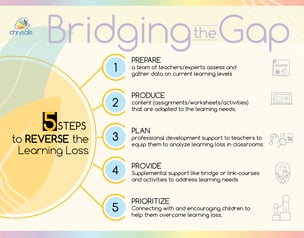
The formation of expert support groups could also be considered. 1:1 support or a smaller group engagement will lead to more accurate data of learning loss. This will be effective in designing an updated curriculum & pedagogy required to mitigate the learning loss.
Supplemental support, whether in the form of bridge or link-courses, extended hours, community-based engagements, and teaching-learning materials comprising of play-based activities, storytelling, reading methods could also be considered to ensure a smooth learning journey for the child into the next academic year.
EdTech - As a Solution and Way Forward
The coming days might again prove to be a test for the school leaders, wherein designing a curriculum that addresses everything - the issue of accessibility of resources and inclusion of children with diverse learning needs. We should understand that there is no one-size-fits-all solution. Schools need to stay up and adapt as the pandemic progresses. An approach consisting of blended learning as a mode of teaching and learning is clearly the need of the hour.
Blended Learning integrates a teacher-lead in-class learning experience with self-directed/self-regulated learning at home via technology. Simply put, Blended Learning is a unique blend of learning that happens both – in-class and at home. It challenges our very outlook of learning. It tackles the question - why should learning be restricted to a single place, a single point in time, or a single mode of learning. Technology has enabled us to learn- any time, any place, and via any mode. It blends the walls between classroom and home to make learning a continuous, engaging, and enjoyable process for every child.
National Education Policy 2020 – NEP 2020 recommends and fully recognizes the importance of both digital learning and face-to-face in-person learning. Hence, the policy recommends different models of Blended Learning to be identified for appropriate replication for different subjects.
The pandemic induced learning loss is real. It is the collective responsibility of every school leader, teacher and parent to empathetically nurture our children bridge this gap. Let’s join hands to ensure that the learning gaps are not only identified but obliterated from our young learners' while they develop into socially and emotionally strong beings.
References:
- https://en.unesco.org/news/unesco-figures-show-two-thirds-academic-year-lost-average-worldwide-due-COVID-19-school
- https://azimpremjiuniversity.edu.in/field-studies-in-education/loss-of-learning-during-the-pandemic
- https://covid19commission.org/regional-task-force-india


